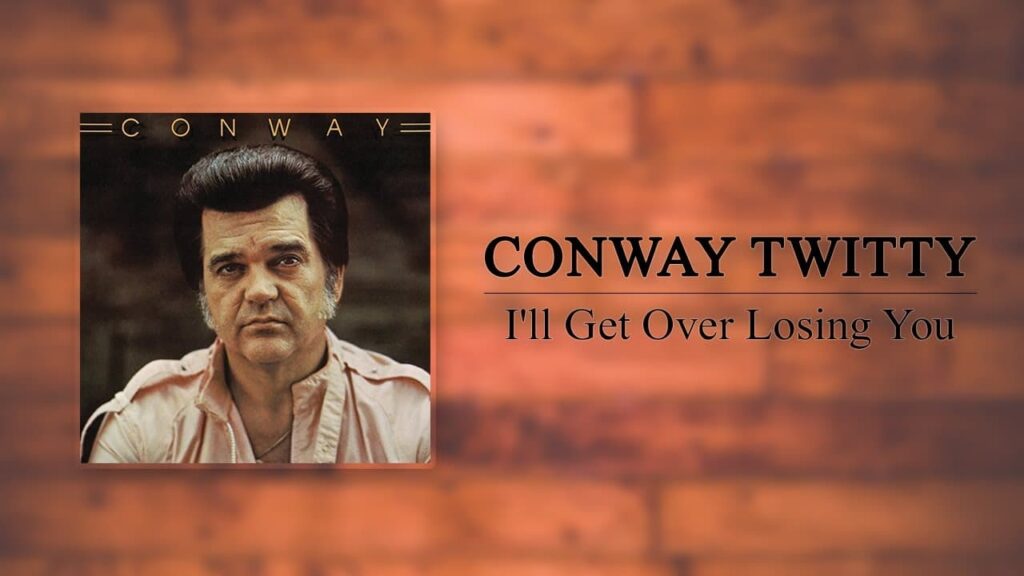
The Quiet Promise: The Hard-Won Acceptance in a Baritone Whisper
There is a sound in country music that is unmistakable, a rich, dark velvet baritone that could soothe a crying child and break a strong man’s heart in the very same breath. That sound belonged to Conway Twitty, and his song “I’ll Get Over Losing You” captures him at his most vulnerable, a moment of fragile humanity disguised as acceptance. It’s a song that speaks volumes to those of us who have lived long enough to know the difference between a rash statement and a difficult truth.
The B-Side Brilliance: Chart Position and Context
While “I’ll Get Over Losing You” might not immediately jump to mind as one of Conway Twitty’s massive chart-topping anthems, its importance is rooted in the success of the music it surrounded. Released in late 1969 as the B-side to the single “That’s When She Started To Stop Loving You,” its primary sibling rocketed up the charts, landing at #3 on the Billboard Hot Country Singles chart.
However, in the era of the jukebox and the diligent radio programmer, B-sides often became hits in their own right, treasured by fans who knew the deeper cuts. “I’ll Get Over Losing You” wasn’t given its own chart run, but it was an essential track on the seminal 1970 album “Hello Darlin’,” an album that cemented Conway Twitty’s legacy and featured his iconic #1 smash title track. This arrangement placed the song in the hands of millions of listeners, securing its place as a deeply beloved, if officially un-charted, classic.
The Story and The Meaning
The beauty of many of Conway Twitty’s best songs is that they came straight from the source: he was a gifted and highly successful songwriter, and “I’ll Get Over Losing You” is one of the gems he penned himself. In an industry often reliant on outside writers, Conway offered a direct, unvarnished window into his own emotional landscape, or at least the collective emotional experience of his loyal audience.
The song is deceptively simple, yet utterly profound in its emotional honesty. It’s not about angry denial, which was the territory of many lesser break-up songs. It’s about a man caught in the painful, in-between stage of grief: the moment of resignation. The lyric doesn’t declare, “I am over you,” but rather offers a quiet, almost defeated promise: “I’ll get over losing you.”
It’s the subtle difference between a certainty and a commitment to endure. He outlines the small, miserable steps of recovery: the day he stops dreaming of her, the moment he can hear her name without wincing. For older readers, the song resonates with the knowledge that great loss isn’t overcome in a dramatic flash, but through a long, grinding process of tiny victories. Conway’s signature sound—that heavy, sensual delivery—lends a gravity to the words, ensuring you feel the weight of every syllable, a man forcing himself to look forward, even when every fiber of his being yearns to look back.
He was often called the “High Priest of Country Music” for his near-religious connection with his fans, particularly women, a connection built on singing about the raw, sensual, and often controversial aspects of adult relationships. But in this track, the sensuality is replaced by a profound, lonely ache. It is the sound of a private moment, a vow made in the dark, that ultimately affirms the listener’s own struggles with letting go.
In a career defined by forty number-one hits, this deep cut serves as a potent reminder of the quality that permeated his work, even in a supporting role. It’s the kind of song that played softly on the radio in the darkened kitchen late at night, perfectly capturing the mood of an entire generation working through the hard math of lost love.